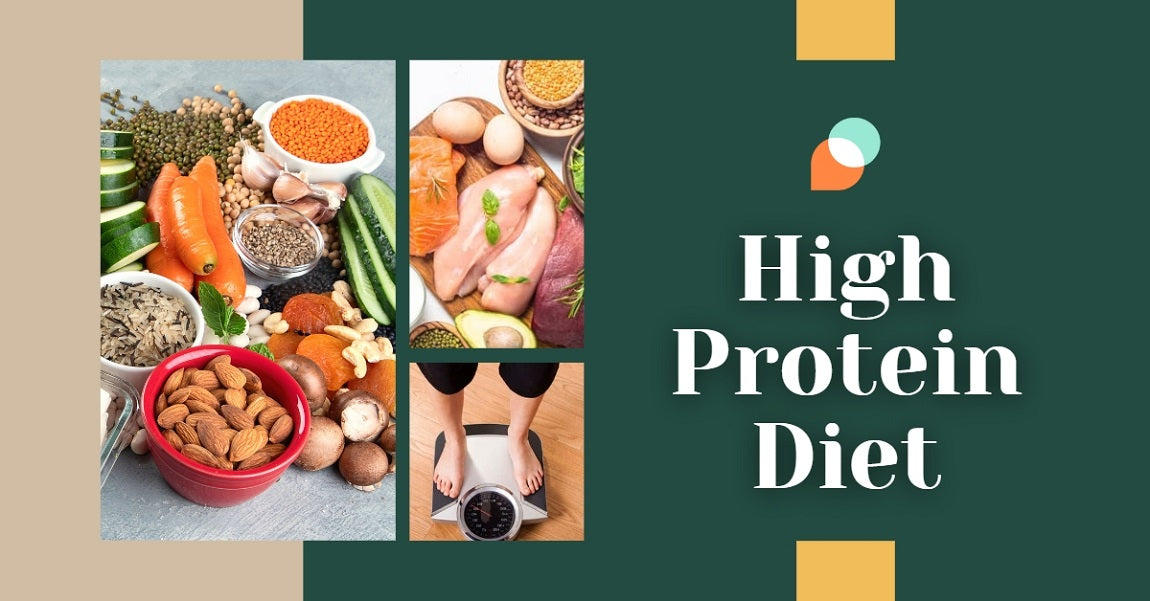Shop At Haya: Your Ultimate Shopping Guide
Discover the best shopping tips, trends, and deals for a smarter buying experience.
Protein Packed: The Secret Ingredient to Your Diet
Unlock the power of protein! Discover the secret ingredient that can transform your diet and fuel your fitness journey. Dive in now!
Top 5 Protein-Rich Foods You Should Include in Your Diet
When it comes to maintaining a healthy diet, incorporating protein-rich foods is essential for muscle building, weight management, and overall health. Here are the top five foods you should consider adding to your meals:
- Eggs: A powerhouse of protein, eggs are versatile and can be prepared in numerous ways while providing essential amino acids.
- Greek Yogurt: Rich in protein and probiotics, Greek yogurt is perfect for breakfast or as a snack, keeping you full and aiding digestion.
- Chicken Breast: Lean and packed with protein, chicken breast is a staple for those looking to enhance their fitness journey.
- Quinoa: A complete source of protein for vegans, quinoa also contains fiber and important nutrients, making it a great addition to salads and bowls.
- Lentils: These legumes are not only high in protein but also loaded with fiber, making them filling and heart-healthy.
Including these protein-rich foods in your diet can help you meet your nutritional needs while supporting various health goals. Whether you're an athlete, a busy professional, or someone simply looking to eat healthier, these options offer a scrumptious way to boost your protein intake. Keep in mind that balancing your diet with other essential nutrients is key to overall well-being.

How Protein Supports Muscle Growth and Weight Loss
Protein plays a crucial role in muscle growth and weight loss, making it an essential nutrient for anyone looking to improve their body composition. When you consume protein, your body breaks it down into amino acids, which are the building blocks of muscle. This process, known as muscle protein synthesis, is stimulated by resistance training and adequate protein intake. Research shows that higher protein consumption can significantly enhance recovery after workouts and promote muscle repair, ensuring that your body can adapt and grow stronger over time.
In addition to supporting muscle growth, protein also aids in weight loss by increasing feelings of fullness and reducing hunger. Including protein-rich foods in your diet can help you feel satiated longer, which may lead to a natural reduction in calorie intake. Additionally, the thermic effect of food (TEF), which is the energy required to digest and process what you eat, is higher for protein compared to fats and carbohydrates. This means that by incorporating protein into your meals, you can enhance your metabolism and support your weight loss goals more effectively.
Is Plant-Based Protein as Effective as Animal Protein?
When discussing the effectiveness of protein sources, many people wonder, is plant-based protein as effective as animal protein? Both types of protein contain essential amino acids, but they differ in their amino acid profiles, digestibility, and nutrient composition. Animal proteins are often considered 'complete' proteins because they contain all nine essential amino acids required by the human body. In contrast, most plant-based proteins are categorized as 'incomplete,' meaning they may lack one or more essential amino acids. However, a well-planned plant-based diet can provide all the necessary amino acids by combining different protein sources, such as legumes and grains.
Moreover, research indicates that individuals consuming plant-based protein can achieve similar muscle mass gains and athletic performance as those relying on animal protein, provided they consume adequate quantities. In addition to protein content, plant-based proteins offer various health benefits, including lower saturated fat levels and higher fiber content, which can contribute to improved heart health and digestive function. Therefore, choosing between plant-based and animal protein may ultimately depend on personal dietary preferences and health goals, rather than a strict efficacy comparison.